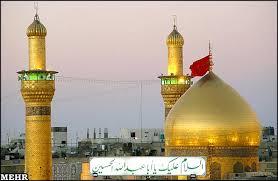این جملات را به دقت بخوانید. تحلیل لازم ندارد!
سخنان آدام زوبین فرمانده قرارگاه تحریم ایران (24 ژوئن/ 5 تیر): ایران برای رهایی از تحریمها وارد برجام دو شود!
دیگر محرمانه نیست و همه میدانند که تعامل اقتصادی با ایران همچنان گیر دارد. شرکتهای خارجی و بانکهای بزرگ خارجی به دلیل ریسک بالا حاضر به همکاری با ایران نیستند.
it’s no secret that some are still hesitant in dealing with Iran. Some foreign companies have indicated they do not want to take on any business in Iran, despite the sanctions lifting. And a number of large international banks have said that the risks are too large.
بخشی از این نگرانی به قرار داشتن ایران در فهرست کشورهای با ریسک بالا فتف (FATF) برمیگردد. به عبارت دیگر نگرانیها از فعالیتهای غیر هسته ای و تحریمهای غیر هسته ای ایران پابرجاست.
In some instances, these concerns center on Iran’s designation as a high-risk jurisdiction by the Financial Action Task Force, or FATF, the world’s standard-setting body for anti-money laundering and counterterrorist financing. In others, the concerns focus on Iran’s malign activities outside the nuclear arena, and the resulting non-nuclear sanctions that remain – which I’ll turn to in a moment.
همانطور که اوباما پیشتر گفت اگر ایران میخواهد که تجارت بیشتری با دنیا داشته باشد باید این نگرانیها را برطرف کند.
If Iran wants more business, Iran needs to address these problems head on. As President Obama said in April: “Iran has to understand what every country in the world understands, which is businesses want to go where they feel safe, where they don’t see massive controversy, where they can be confident that transactions are going to operate normally.”
برجام تنها به موضوع هسته ای ایران پرداخت. اما هنوز تهدیدات دیگری از رفتارهای غیر هسته ای ایران باقیمانده
Now, as we said throughout our negotiations, the JCPOA aimed at addressing the nuclear program only. Removing the threat of an Iranian nuclear program is a massive achievement, but we still face a range of threatening behavior outside the nuclear file.
ایران بزرگترین حامی تروریسم در جهان است و تامین مالی و تامین سلاح انصار الله یمن، حزب الله لبنان و سوریه را ادامه میدهد. ایران همچنین برنامه موشکی بالستیک خود را ادامه میدهد که تهدیدی برای اسرائیل است. نقض حقوق بشر در ایران ادامه دارد!
Iran continues to be the world’s leading state sponsor of terrorism. It supplies funding and weapons to the Houthis in Yemen, to Hizballah, and to the brutal Asad regime. It continues to develop its ballistic missile program, and to threaten Israel with aggression. And it continues to violate human rights.
از آنجا که ما میدانستیم ایران بزودی این رفتارهای خود را تغییر نمیدهد از همان روز اجرای برجام، فشارهای سیاسی و تحریمها را حفظ کردیم و ادامه میدهیم و خواهیم داد.
As we expected, Iran has not moderated this conduct since the implementation of the JCPOA. And, as we promised, we have continued to target this behavior, with interdictions, with diplomatic pressure, and with sanctions.
Recent Treasury designations have targeted key supporters of Iran’s ballistic missile program; agents of Mahan Air, which facilitates the terrorist activities of the IRGC-Qods Force; and a central Hizballah money laundering network.
We will keep after these types of targets with all of the means at our disposal. And we will do so now, thanks to the JCPOA, with the nuclear threat off the table – putting the U.S. and our allies in a far safer position.
میخواهم شفاف بگویم همانند تحریمهای هسته ای، سایر تحریمهای ایران هم تنها برای تغییر رفتار ایران است و اگر محاسبات ایران تغییر کند و رفتارهای خود در موضوع منطقه، موشکی و حقوق بشر را تغییر دهد، این تحریمها هم رفع میشود!
I want to be clear. Like the nuclear-related sanctions we have now lifted, the sanctions that remain are not meant to punish. They are intended to pressure Iran to change its calculus on terrorism and regional destabilization, on ballistic missiles, and on human rights – just as our now-lifted sanctions helped push Iran to change course on its nuclear program.
- ۹۵/۰۴/۰۶

